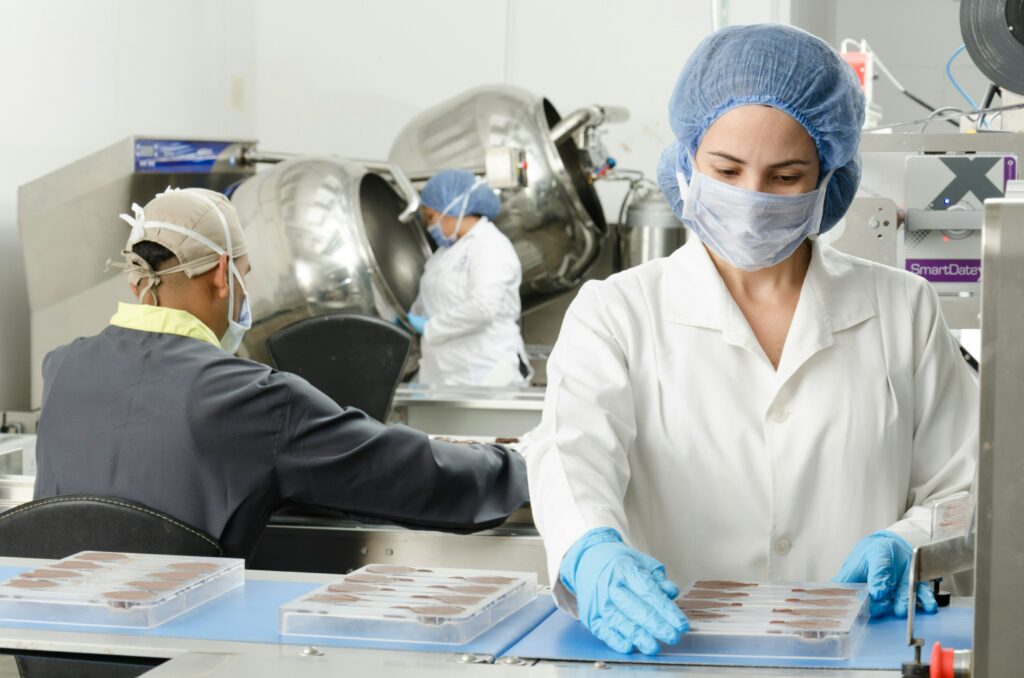Are pharmaceuticals doctors?
In the realm of healthcare, there exists a multitude of roles and professions, each contributing to the complex ecosystem of patient care, research, and drug development. Are pharmaceuticals doctors? Among these roles, pharmaceutical professionals and medical doctors play distinct yet interconnected roles in advancing healthcare and improving patient outcomes. In this comprehensive article, we delve into the nuances of these professions, exploring their respective responsibilities, education, training, and contributions to the healthcare landscape.
Understanding Pharmaceutical Professionals: Roles and Responsibilities
-
-
Pharmacists
Pharmacists are healthcare professionals who specialize in the safe and effective use of medications. Their responsibilities include dispensing prescriptions, providing medication counseling to patients, monitoring for drug interactions and adverse effects, and collaborating with other healthcare providers to optimize patient care. Pharmacists play a crucial role in promoting medication adherence, managing chronic conditions, and ensuring the safe and appropriate use of pharmaceuticals.
-
-
-
Pharmaceutical Scientists
Pharmaceutical scientists are researchers and experts in drug development, formulation, and delivery. Their work spans the entire drug development process, from initial discovery and preclinical research to clinical trials and regulatory approval. Pharmaceutical scientists employ a multidisciplinary approach, combining knowledge from fields such as chemistry, biology, pharmacology, and engineering to develop new drugs, improve existing formulations, and advance the science of pharmaceuticals.
-
-
-
Pharmacy Technicians
Pharmacy technicians support pharmacists in various aspects of medication dispensing and administration. Their responsibilities may include preparing prescriptions, managing inventory, processing insurance claims, and assisting with administrative tasks in the pharmacy setting. Pharmacy technicians play a vital role in ensuring the efficient operation of pharmacies and the timely delivery of medications to patients.
-
Exploring the Education and Training Pathways
-
-
Pharmacists
To become a pharmacist, individuals typically complete a Doctor of Pharmacy (PharmD) program, which typically requires four years of postsecondary education. PharmD programs include coursework in pharmacology, pharmaceutics, therapeutics, pharmacy law, and patient care. After completing their education, aspiring pharmacists must pass licensure exams and fulfill state-specific requirements to practice pharmacy.
-
-
-
Pharmaceutical Scientists
Pharmaceutical scientists typically hold advanced degrees, such as a Master of Science (MS) or Doctor of Philosophy (PhD), in pharmaceutical sciences or a related field. These programs provide specialized training in drug discovery, formulation, pharmacokinetics, pharmacodynamics, and other aspects of pharmaceutical research. Pharmaceutical scientists may also pursue postdoctoral training and certification to further develop their expertise in specific areas of drug development.
-
-
-
Pharmacy Technicians
Pharmacy technicians typically complete a pharmacy technician training program, which may be offered by vocational schools, community colleges, or employers. These programs vary in length and content but generally cover topics such as medication dispensing, pharmacy operations, and pharmaceutical calculations. Pharmacy technicians may also pursue certification through professional organizations to demonstrate their competence and enhance their career prospects.
-
Differentiating Pharmaceutical Professionals from Medical Doctors
-
-
Scope of Practice
Pharmaceutical professionals focus primarily on medication-related activities, such as dispensing prescriptions, counseling patients on medication use, and conducting research on drug development. In contrast, medical doctors are trained to diagnose and treat medical conditions, perform medical procedures, and coordinate patient care across various healthcare settings.
-
-
-
Education and Training
While both pharmaceutical professionals and medical doctors undergo rigorous education and training, their paths diverge in terms of focus and specialization. Medical doctors complete medical school followed by residency training in a specific medical specialty, while pharmaceutical professionals pursue specialized training in pharmacy practice, pharmaceutical sciences, or related fields.
-
-
-
Patient Interaction
While pharmacists and pharmacy technicians interact directly with patients to provide medication counseling and support, their role is primarily focused on medication management and adherence. Medical doctors, on the other hand, have a broader scope of practice that includes diagnosing medical conditions, developing treatment plans, and providing comprehensive medical care to patients.
-
Collaborative Care: Bridging the Gap Between Pharmaceutical Professionals and Medical Doctors
-
-
Inter-professional Collaboration
In modern healthcare settings, collaboration between pharmaceutical professionals and medical doctors is essential for ensuring optimal patient care and outcomes. Pharmacists collaborate with medical doctors to optimize medication regimens, prevent medication errors, and manage drug interactions, while medical doctors rely on pharmaceutical expertise to make evidence-based prescribing decisions and monitor patients’ response to therapy.
-
-
-
Team-Based Care Models
Team-based care models, such as interprofessional collaborative practice (IPCP) and medication therapy management (MTM), promote collaboration and communication among healthcare providers to achieve shared patient-centered goals. In these models, pharmaceutical professionals and medical doctors work together as part of interdisciplinary teams to address patients’ medication-related needs, improve medication adherence, and optimize health outcomes.
-
-
-
Continuing Education and Professional Development
Continuing education and professional development play a vital role in fostering collaboration and mutual respect between pharmaceutical professionals and medical doctors. Are pharmaceuticals doctors? Inter-professional education programs, conferences, and workshops provide opportunities for healthcare providers to learn from each other, share best practices, and enhance their knowledge and skills in medication management and patient care.
-
Embracing Diversity in Healthcare Professions
In conclusion, Are pharmaceuticals doctors? is a question that medical doctors play distinct yet complementary roles in advancing healthcare and improving patient outcomes. While pharmaceutical professionals focus on medication management and drug development, medical doctors are trained to diagnose and treat medical conditions across a wide range of specialties. By embracing diversity in healthcare professions and promoting collaboration and teamwork among pharmaceutical professionals and medical doctors, we can create more integrated, patient-centered care models that optimize the use of medications and promote health and wellness for all.





